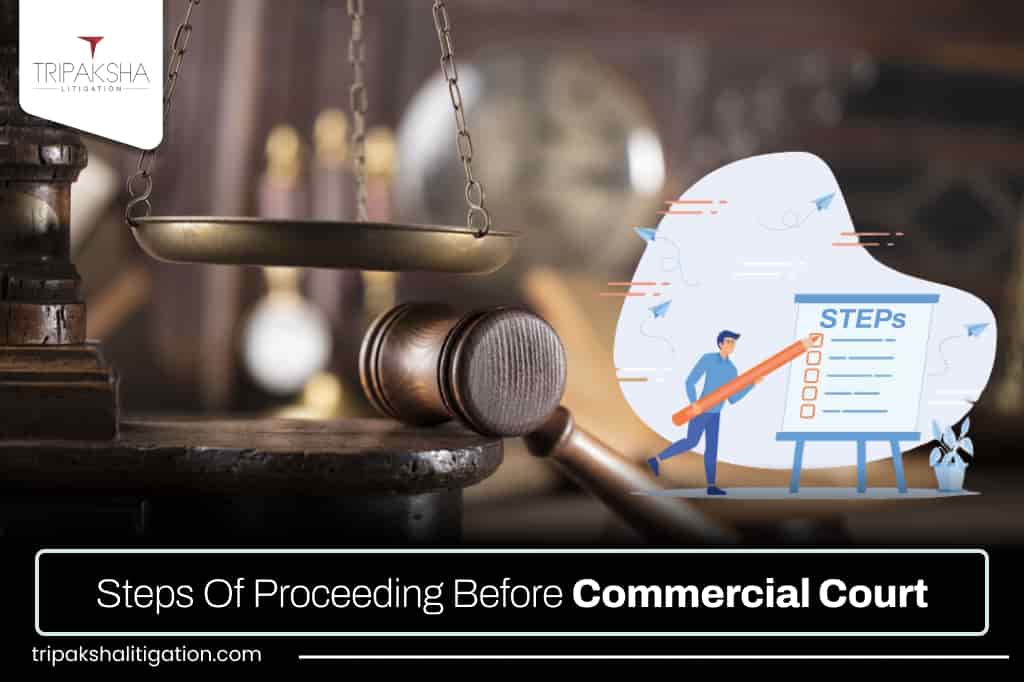Introduction
Commercial suits, or business-related legal disputes, are crucial for businesses and the economy in India. These suits often involve issues like breach of contract, partnership disagreements, and intellectual property conflicts. The court proceedings in such cases are designed to handle these complex issues efficiently.
Where to File a Commercial Suit
Commercial suits in India are filed in specialized commercial courts or divisions within the civil courts. The court’s jurisdiction depends on factors like the location of the business, where the contract was signed or executed, or specific terms mentioned in the agreement.
To start a commercial suit, the plaintiff (the person who brings the suit) files a plaint. This is a detailed written statement explaining the dispute, the legal grounds for the suit, and what the plaintiff wants from the court. Along with the plaint, the plaintiff submits all supporting documents. After filing, the court issues a summons to the defendant (the person against whom the suit is filed), who must then respond with a written statement.
Steps Before the Trial
Before the actual trial begins, several steps are taken to prepare the case:
- Pleadings: Both sides exchange written documents to clarify the issues in dispute. This includes the plaint, the defendant’s written statement, and any further replies.
- Discovery: This phase involves sharing documents and information related to the case. It can include written questions (interrogatories), oral questioning under oath (depositions), and requests for documents. This ensures both sides have all the necessary information.
- Case Management Conferences: These are meetings where the court sets timelines, discusses settlement options, and establishes procedural rules. These conferences help speed up the process and encourage early resolution.
- Interim Relief: Either party can ask the court for temporary measures, like injunctions, to maintain the status quo until the case is resolved. This is crucial in commercial disputes where ongoing business operations might be affected.
The Trial Process
The trial is a formal process where both parties present their cases before a judge. The main stages of the trial include:
- Opening Statements: Both sides outline their cases and the evidence they plan to present.
- Witness Examination: Witnesses give testimony under oath. Both sides can question these witnesses to establish facts and test the credibility of the evidence.
- Presentation of Documents: Parties present relevant documents, such as contracts and financial records, to support their claims. The court examines these documents for their relevance and authenticity.
- Closing Arguments: After all evidence is presented, both sides summarize their cases and try to persuade the judge in their favor.
Judgement and Appeals
After the trial, the judge delivers a judgment based on the evidence and arguments presented. This judgment may include financial compensation or other forms of relief. In some cases, the judge may also order the losing party to pay the legal costs of the winning party.
If a party is unhappy with the judgment, they can appeal to a higher court. The appeal process reviews the trial court’s decision for legal errors. Appeals must be filed within a specific time frame and follow certain procedures.
Enforcing the Judegment
Once a judgment is final, the winning party can take steps to enforce it. This can include:
- Attachment of Assets: Seizing the losing party’s assets to satisfy the judgment.
- Garnishment: Redirecting payments owed to the losing party by third parties to the winning party.
- Contempt of Court: If the losing party fails to comply with the court’s orders, they can be held in contempt, leading to fines or imprisonment.
Conclusion
Understanding the court proceedings in commercial suits is important for businesses in India. These proceedings provide a structured way to resolve business disputes fairly and efficiently. By knowing the steps involved, businesses can better navigate legal challenges and protect their interests.

